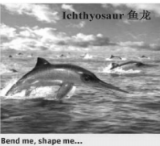题目内容
16.Coyotes(丛林狼) used to live only in wide-open spaces of western prairies and deserts.They avoided forests,where wolves,their enemies,lived.But as forests were cleared to make room for farms and communities,coyotes started spreading east and west into they newly open territories.Most coyotes are afraid of people,so those living in cities have learned how to avoid being seen.Street-smart coyotes hunt for food between dusk and dawn,when few people are around.During the day,the animals rest in out-of-the-way spots."They‘are trying to avoid people as best as they can,"says a scientist studying coyotes around Chicago,Illinois
City life suits coyotes in several ways.There are no enemies such as mountain lions,wolves,or hunters.City coyotes eat well,too.Parks yards and green spaces in cities provide habitat for a feast of favorite coyote foods,including mice,rats and rabbits.Coyotes also eat lots of fruits,With plenty of natural food and no-predators (捕食性动物),coyotes in urban areas are healthier,live longer and raise larger families than their country cousins.
Unfortunately,some city coyotes lose their fear of humans.They find tasty garbage of pet food outside homes.They notice that people ignore them instead of chasing them away.Some humans even feed coyotes on purpose,thinking it's an act of kindness.Actually,it's a serious mistake.
Coyotes that become comfortable around people and learn to associate buildings and yards with food are the ones that get into trouble.Some coyotes attack pets in yards.Sometimes a coyote may even chase or bite in a human.An animal that behaves in these ways must be removed by wildlife officials.
It's people that change coyotes'behavior.But we're also the ones who can help them be good neighbors.We can teach them by not providing food for them,and by making sure they know there are certain area they're not allowed.Can coyotes and people live more safely together in cities?
68.The first paragraph is to showC
A.where coyotes used to live
B.what coyotes'enemies are
C.why coyotes began to live in cities
D that forests are making room for humans
69.Why does city life suit coyotes?C
A.People are nice to them
B.There are more green spaces
C.There is enough good and no enemies
D They can hunt for food at dusk
70.Some city coyotes are not afraid of humans maybe becauseC.
A.they are being protected by wildlife officials
B.people chase them away when seeing them
C.some people provide them with food sometimes
D they are allowed to stay indoors.
71.What is the purpose of this passage?D
A.To introduce a kind of wolf-coyotes to readers.
B.To persuade people to move away from where Coyotes live
C.To enjoy the harmony between coyotes and humans,
D To call on people to live more safely with coyotes.
分析 本文讲述生活在城市里的丛林狼为什么不怕人的原因以及它的生活习性.
解答 CCCD
68 C 细节题. 根据文章第一 段as forests were cleared to make room for farms and communities,coyotes started spreading east and west into they newly open territories. 可知由于森林的砍伐,丛林狼被迫生活在市区,故选C.
69 C 细节题. 根据文章第二 段There are no enemies 可知在城市没有敌人并且有足够的食物,故选C.
70 C 细节题. 根据文章第三 段Some humans even feed coyotes on purpose,thinking it's an act of kindness.Actually,it's a serious mistake. 可知由于有些人喂它们,因此丛林狼不害怕他们.
71 C 主旨大议题. 通读全文可知本文讲述生活在城市里的丛林狼为什么不怕人的原因以及它的生活习性,因此呼吁人们与土狼更安全地生活在一起.
点评 做阅读理解时要快速的浏览全文,把握文章主旨大意,带着问题回到原文,寻找细节或概括相应的答案,最后要理清作者写作思路.

练习册系列答案
 一本好题口算题卡系列答案
一本好题口算题卡系列答案
相关题目
7.-________ do you visit your parents?
-Every ________ days.( )
-Every ________ days.( )
| A. | How much; a few | B. | How soon; five | C. | How long; third | D. | How often; few |
20.He is really nervous.He ______ back and forth all the night waiting for the results.( )
| A. | had walked | B. | has been walking | ||
| C. | walked | D. | is walking |
 We've considered several ways of paying to cut inline:hiring line standers,buying tickets from scalpers (票贩子),or purchasing line cutting privileges directly from,say,an airline or an amusement park.Each of these deals replaces the morals of the queue (waiting your turn) with the morals of the market (paying a price for faster service).
We've considered several ways of paying to cut inline:hiring line standers,buying tickets from scalpers (票贩子),or purchasing line cutting privileges directly from,say,an airline or an amusement park.Each of these deals replaces the morals of the queue (waiting your turn) with the morals of the market (paying a price for faster service).